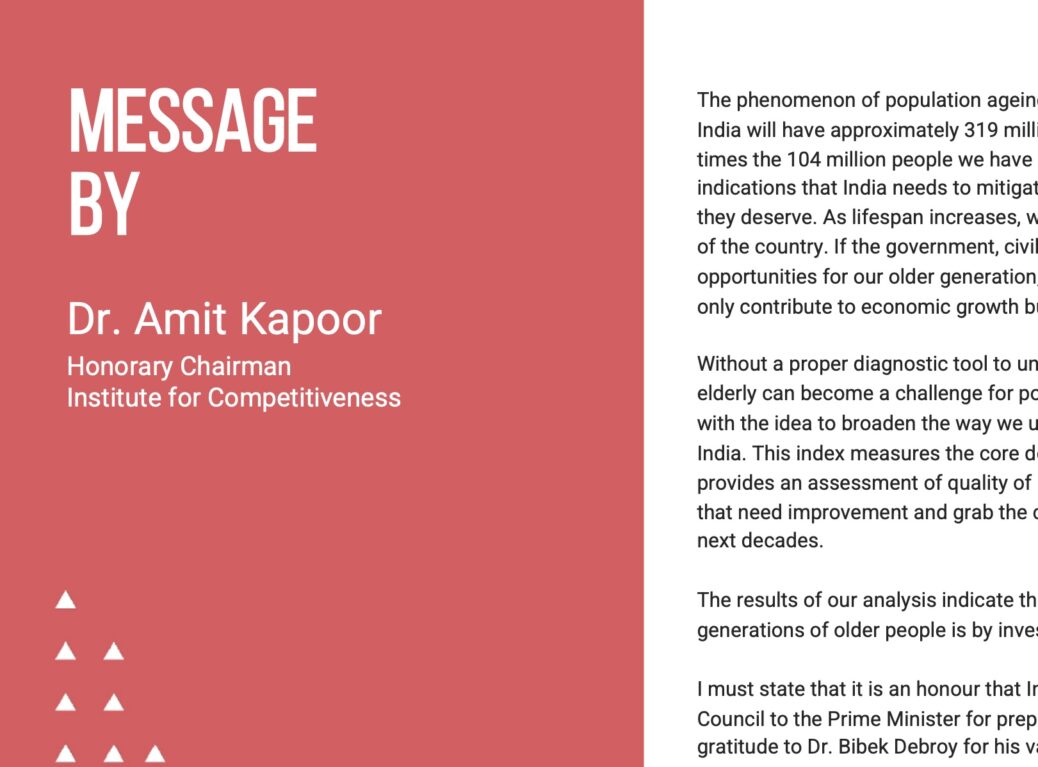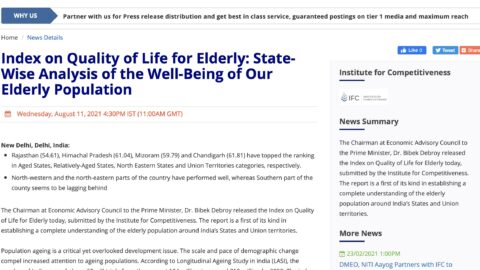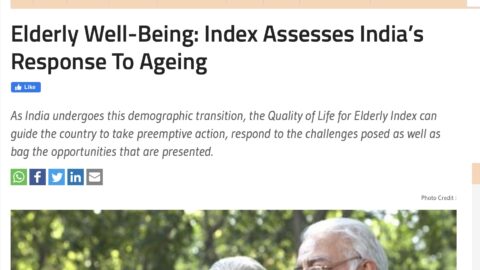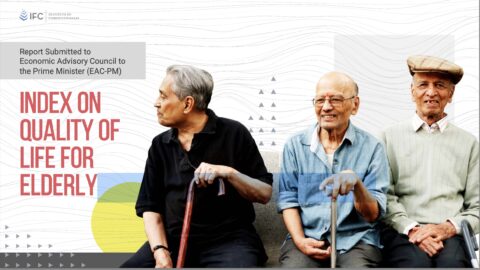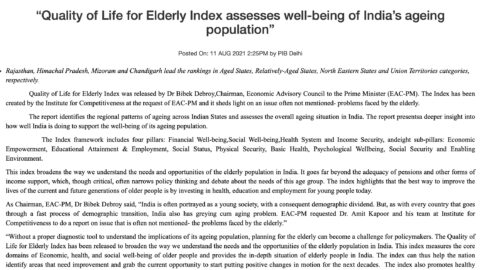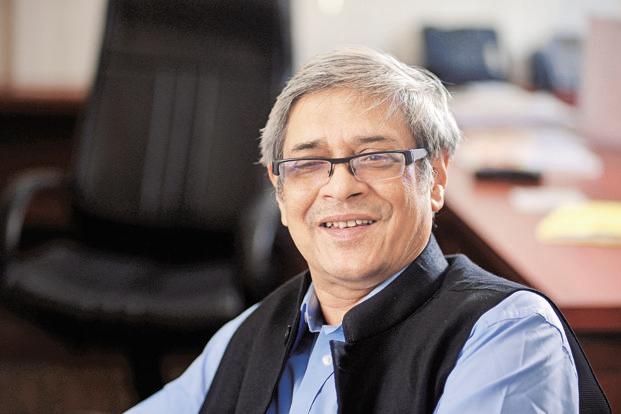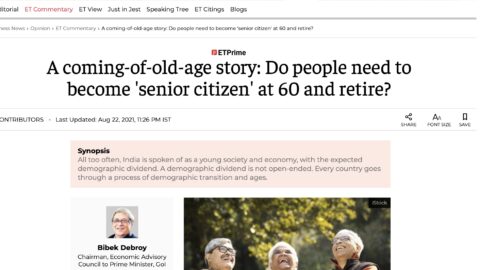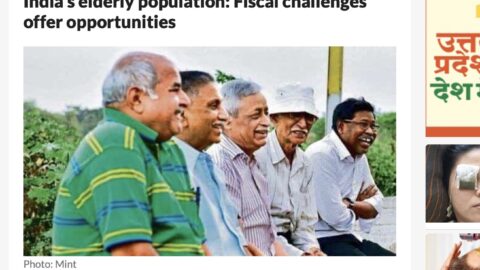The phenomenon of population ageing is inevitable. According to Longitudinal Ageing Study in India (LASI), India will have approximately 319 million people of age 60 and above by 2050. This number is nearly three times the 104 million people we have at present, according to the 2011 census data. The statistics are clear indications that India needs to mitigate the challenges faced by our elderly to provide them the quality life they deserve. As lifespan increases, we have to find ways how the elderly can contribute to the development of the country. If the government, civil societies, families, and communities strive together, we can create opportunities for our older generation, enabling them to utilize their experience with flexibility. This will not only contribute to economic growth but will provide the elderly with a life of dignity and purpose.
Without a proper diagnostic tool to understand the implications of its ageing population, planning for the elderly can become a challenge for policymakers. The Index on Quality of life for Elderly has been developed with the idea to broaden the way we understand the needs and the opportunities of the elderly population in India. This index measures the core domains of economic, health, and social well-being of older people and provides an assessment of quality of life for elderly in India. The index can thus help the nation identify areas that need improvement and grab the current opportunity to start putting positive changes in motion for the next decades.
The results of our analysis indicate that the best way to improve the lives of the current and future generations of older people is by investing in health, education and employment for young people today.
I must state that it is an honour that Institute for Competitiveness was engaged by Economic Advisory Council to the Prime Minister for preparing the Quality of Life Index for Elderly. I would like to extend my gratitude to Dr. Bibek Debroy for his valuable feedback and support through the course of the study and development of the index. I would also like to thank the team members at Institute For Competitiveness – Sheen Zutshi, Preksha Jain, Disha Sharma, Sreetama Basu and Harshula Sinha for their tireless efforts in taking this study to fruition.
I hope that the report will be beneficial in developing appropriate policies and programmes required to ensure good quality of life for our elders.

